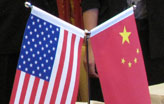Economy
Great expectations in Vietnam
Updated: 2011-07-15 13:42
By Alfred Romann (China Daily European Weekly)
Vietnam's tourism sector will be transformed in a few years' time if Lloyd Nathan's projects go according to plan. Nathan, CEO of Asian Development (Canada), is overseeing the building of five casinos along the Ho Tram strip about an hour out of Ho Chi Minh City and near Vung Tau.
ACDL, which was awarded the highly coveted investment certificate by the government of Vietnam, is a privately held Canadian-based luxury resort developer. Harbinger Capital Partners, a leading private investment fund based in New York with $10 billion in assets under management, is ACDL's largest investor.
The first resort to be built is the MGM Grand Ho Tram, which is already under construction and should open by early in 2013. It is seven stories and will include a casino as the centerpiece of a number of amenities.
Other resorts will be phased in after that. The second resort, already on the drawing board, will also include gaming.
Nathan is a former lawyer, who became a gaming executive at MGM after a legal and executive career. He was president of MGM Mirage Global Gaming Development and led the involvement of MGM Resorts International in the Ho Tram Strip.
With a track record of building business units into successful ventures, he is now working on turning the Ho Tram Strip into an international destination with resorts, casinos and other amenities along a long strip of beach. The Ho Tram Strip has 2.2 kilometers of beach near a major city. It is a unique feature.
For Vietnam, which does not allow its citizens into casinos, the development of large and attractive resort and gaming destinations could be a boon.
Asian Coast has a unique investment certificate granted by the government that allows it to build large-scale gaming venues. It plans to build five resorts.
"The 16 countries in close proximity to Vietnam comprise over half of the world's population, but only 5 percent of the world's licensed gaming establishments," says Nathan.
"I am not a believer in unlimited demand. But I do believe supply has not yet met demand in Asia and I am also a firm believer in better supply," he adds.
There is something of a built-in barrier in getting revenues from the domestic market. Vietnamese citizens are not allowed inside the casinos. On the surface, this should make it difficult to make much money from the domestic market, but the reality is a little different.
"There is a sizable existing market within Vietnam due to the large number of expatriates living in and around Ho Chi Minh City and Vung Tau, and a significant number of Vietnamese citizens with foreign passports or foreign residency permits," says Nathan. "These groups live in large numbers and currently have high frequency visitation to a very limited number of small slot parlors which do not offer live tables or the breadth of amenities that will be available at the Ho Tram Strip."
More than that, there will be other attractions beyond gaming.
Still, the real revenues are likely to come not from the local market but from abroad. Asian Coast is betting that there will be enough tourists and gamblers from Japan, South Korea, Malaysia, India, the Philippines, Indonesia, China and Thailand that will head to Vietnam as an alternative to Macao SAR or Singapore.
"Our business model is predicated upon VIP or junket play," says Nathan. "We will be in a position to offer significantly more value for players and for junket operators than in other parts of Asia. We also will be providing quality beachfront with activities for all of the family in a country that is steeped in culture."

Specials

China-US Governors Forum
The first China-US Governors Forum is held July 15 in the Salt Lake City, the United States.

My China story
Foreign readers are invited to share your China stories.

Rare earths export quota
China kept its export quota at almost the same level as last year.